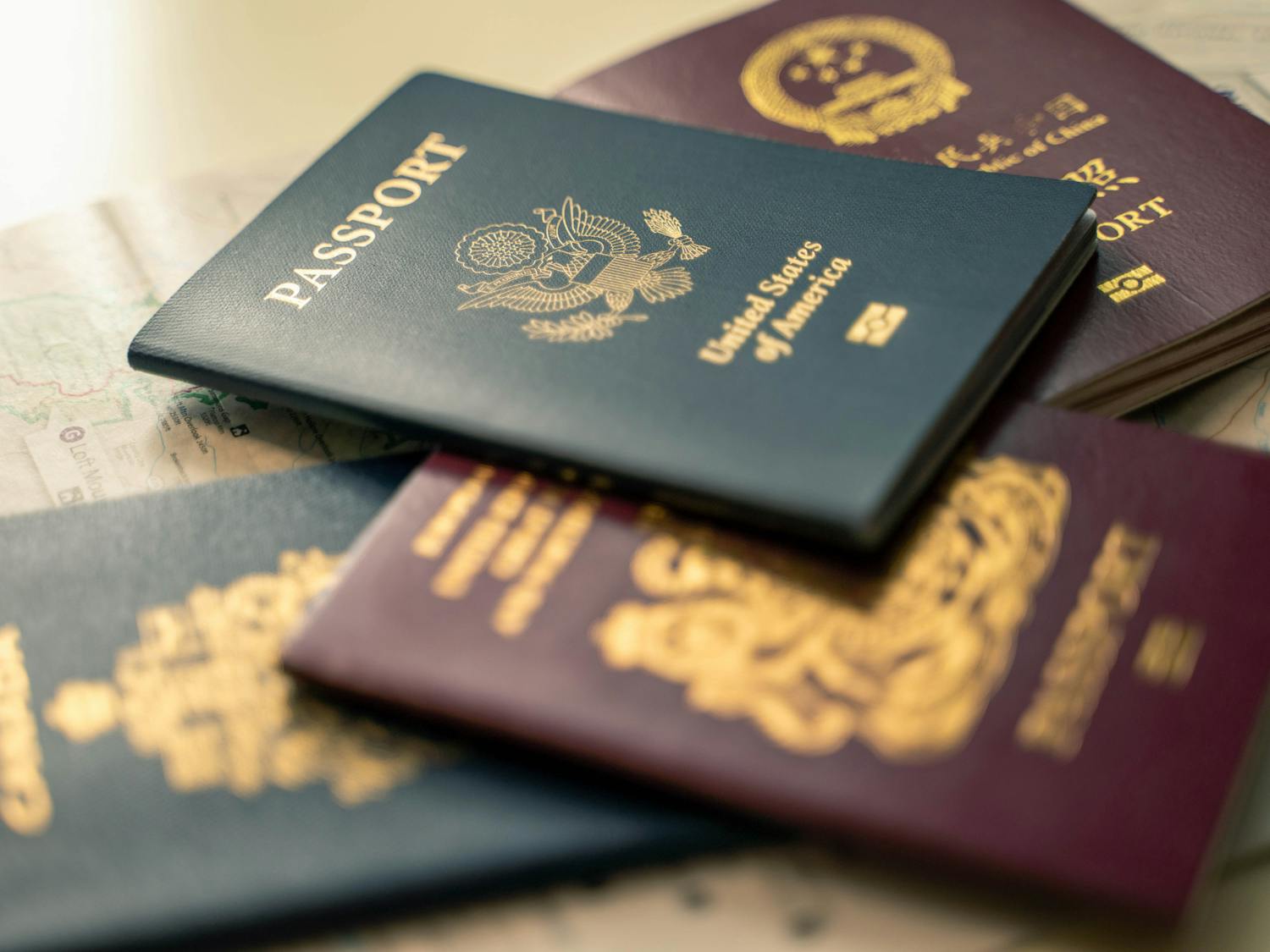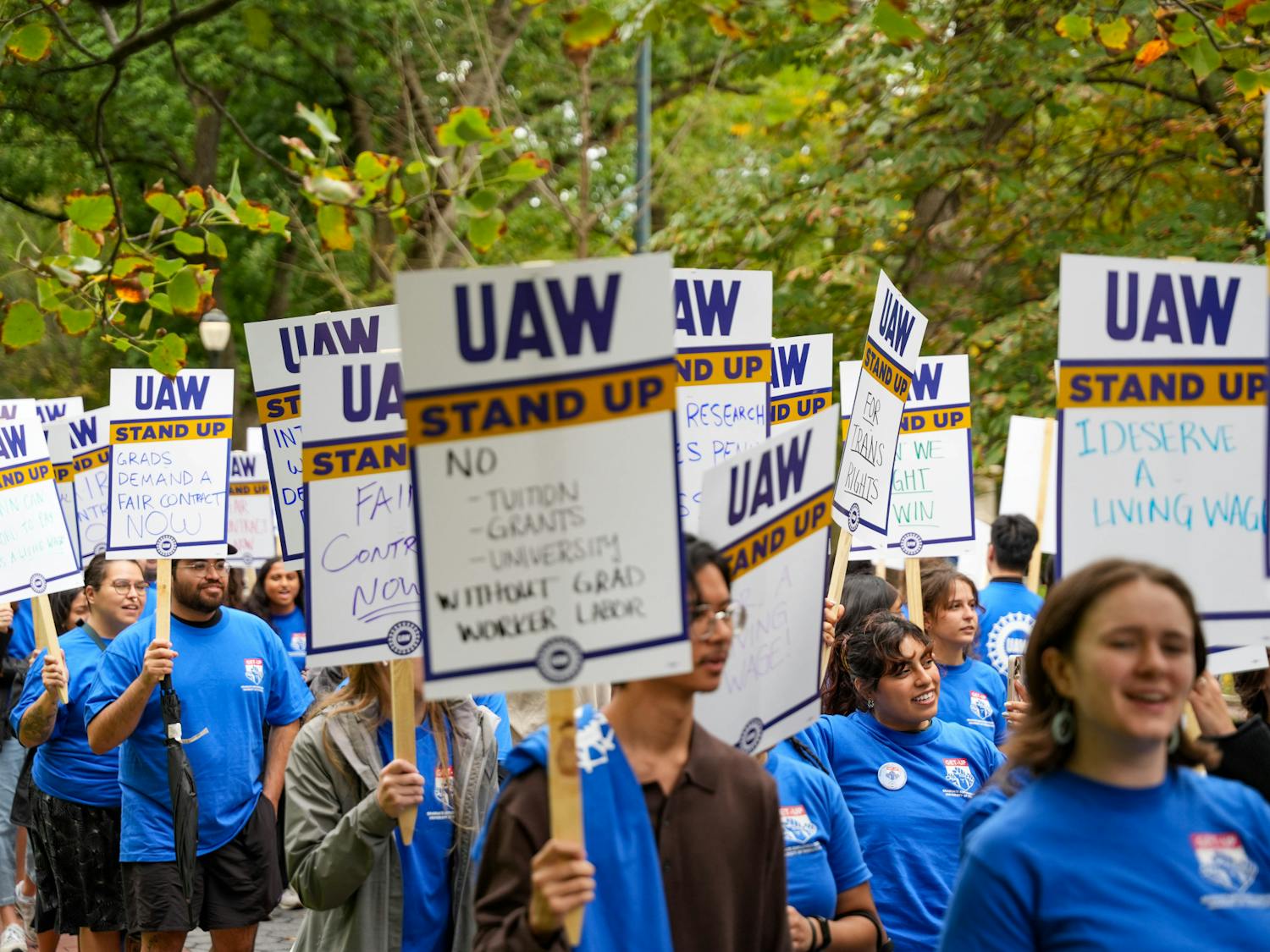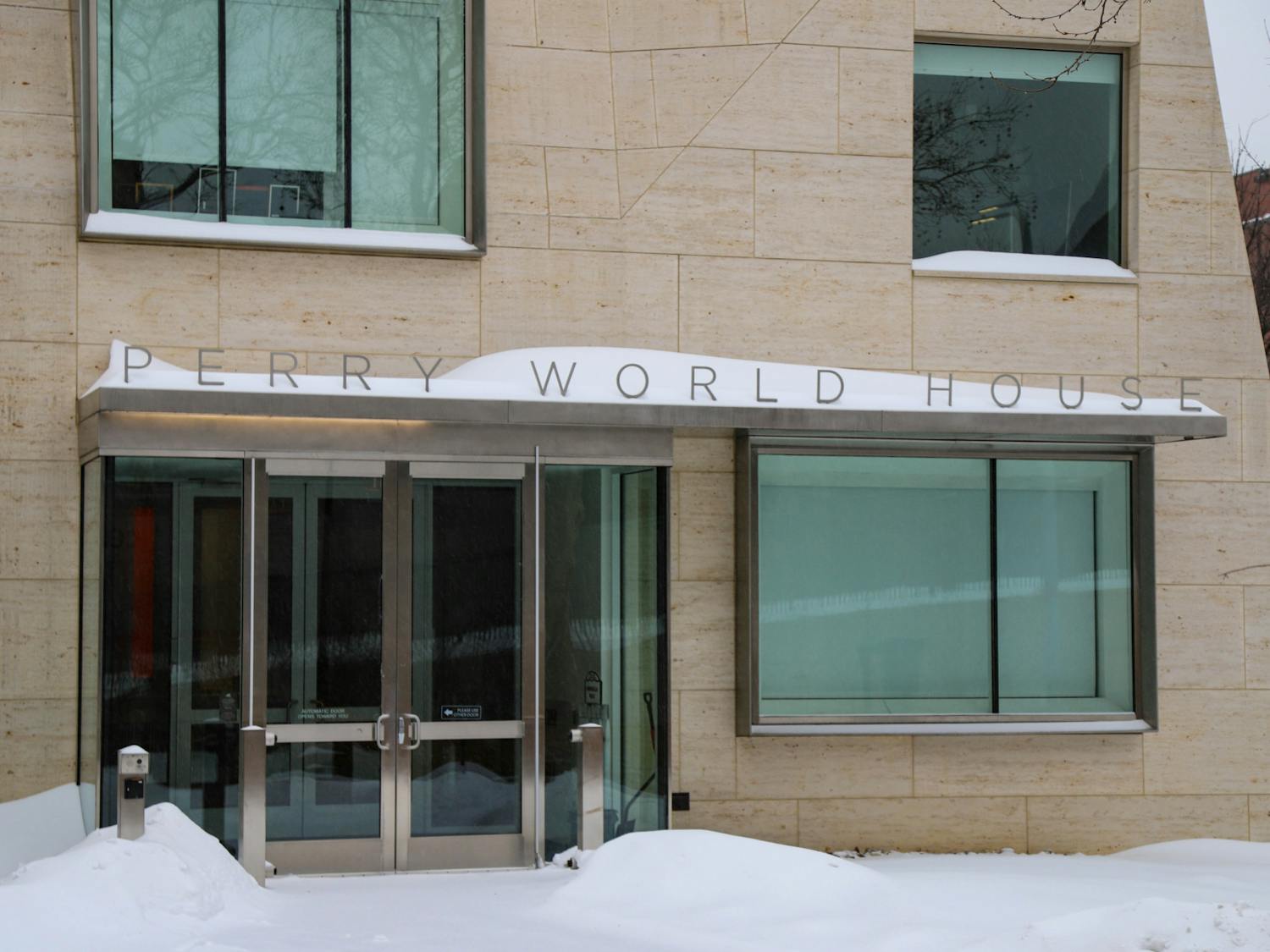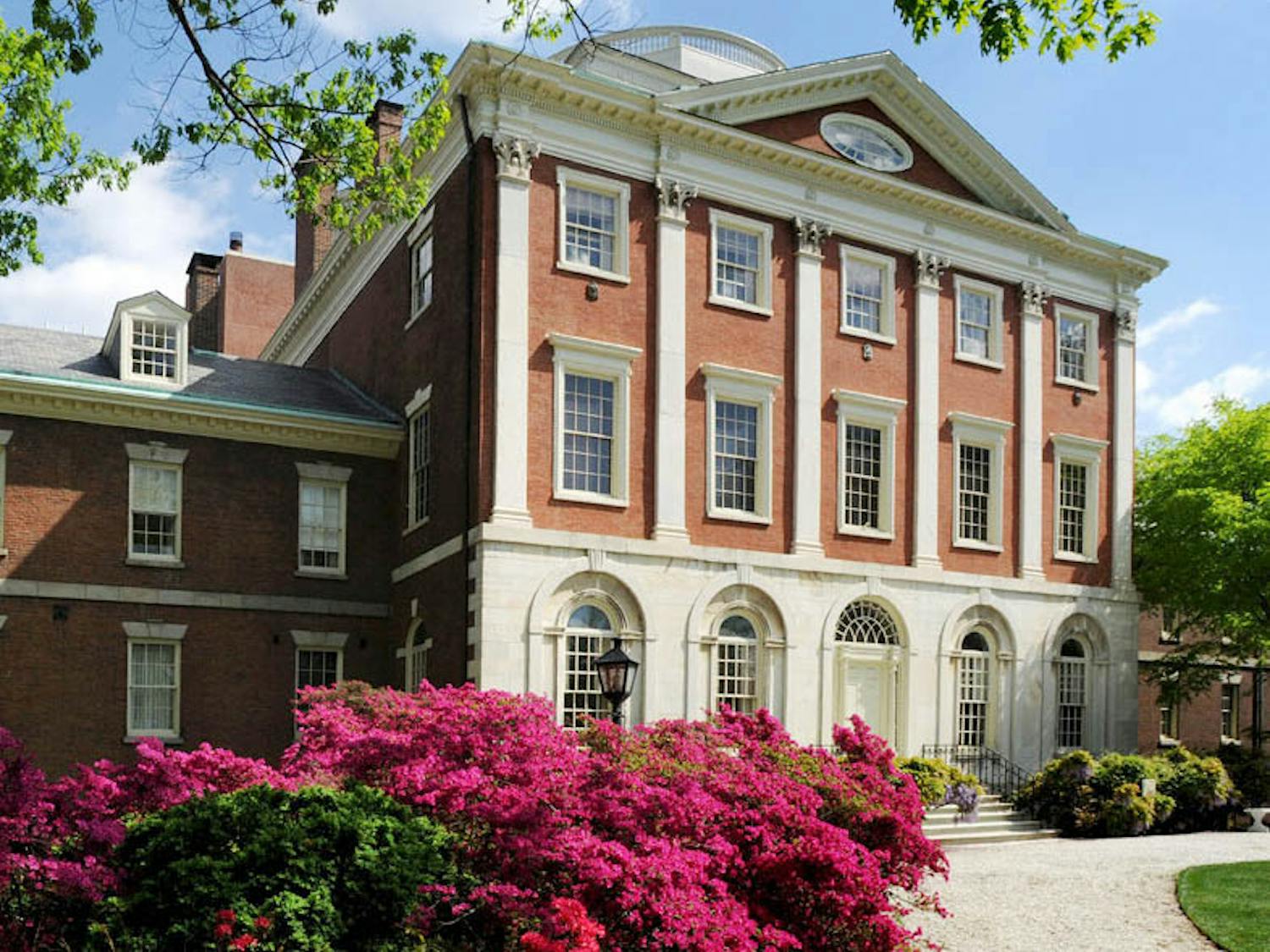Five Ivy League institutions welcomed at least one class of students back to campus for the fall semester. Here's how these colleges are handling the pandemic from COVID-19 testing, case numbers, to campus life — offering a window into what the upcoming spring semester could look like for Penn students.
Cornell University
Cornell is the only Ivy League institution to have welcomed back all students to campus for a hybrid semester.
All undergraduate students are tested for coronavirus twice per week and required to complete the Daily Check, similar to the Penn OpenPass, before accessing campus facilities. Students who test positive are quarantined in a hotel room, paid for by the University, Cornell President Martha Pollack and Provost Michael Kotlikoff wrote in a Washington Post op-ed on Sept. 30.
They wrote that Cornell tests more than 30,000 individuals per week. Cornell reported 14 new COVID-19 cases and a .04% positivity rate for the week ending in Nov. 8.
The maximum number of students allowed in any dorm room at a time is the number of residents living in the dorm plus one. The maximum number of individuals allowed in a suite common area is the number of residents living in that suite.
While visitors, including family members, are not allowed in campus facilities, students may visit other residence halls and are responsible for adhering to the Cornell Behavioral Compact which includes social distancing and mask-wearing.
Pollack and Kotlikoff wrote in their op-ed that Cornell modified classrooms, dining halls, and study rooms for social distancing, and upgraded ventilation systems.
RELATED:
Penn reports 107 new COVID-19 cases from last week — the highest weekly case count yet
Penn will open on-campus housing for spring semester and hold most classes remotely
Fall classes began on Sept. 2 with the last day of on-campus instruction being Nov. 24, after which remaining instruction and final exams will be conducted virtually until the semester ends on Dec. 21.
Harvard University
Only first-year students and students with special circumstances were permitted back on campus with all classes conducted online.
To contain the spread of COVID-19, students and faculty living in on-campus dorms and houses are tested three times a week, while students living off campus are tested based on their activity on campus.
In the last seven days, Harvard reported 17 new positive cases, a positivity rate of 0.10%, and a total of 17,044 tests administered. Since June 1, Harvard has administered 176,862 tests and 106 positive cases, 11 of which were undergraduate students.
Students were prompted to sign the Residential Community Compact, which required them to take video training on adhering to public health measures, track their symptoms daily, and to participate in contact tracing when necessary.
All students live in single bedroom rooms, and guests — including students living in other residences on campus, students living off campus, and family members — are not permitted.

Yale University
Yale welcomed first-year students, juniors, and seniors back to campus for the fall semester, while sophomores, juniors, and seniors are eligible to return in the spring.
Students are tested twice per week and assigned to suites with a single-occupant bedroom and shared bathroom. Campus amenities like dining halls are open but require mask-wearing and social distancing.
Since Aug. 1, there have been 165 positive cases among its population. In the last seven days, Yale recorded 45 positive cases out of 7,628 students, faculty, and staff tested.
On Nov. 6, Yale raised its COVID-19 alert status from yellow to orange, warning of possible increased rates of infections after identifying 20 positive cases among students in three residential dorms. Varsity athletics and intramural sports reverted to no in-person activities through Nov. 8.
Dartmouth College
Half of Dartmouth's undergraduate population are scheduled to return to campus each quarter through summer 2021. Each student will have the opportunity to spend two terms enrolled on campus for the 2020-2021 academic year.
All students must participate in weekly surveillance testing, including those who live off campus in the Upper Valley. Since July 1, Dartmouth has reported a cumulative total of 22 cases among students, faculty, and staff on campus with a positivity rate of 0.03%.
Students living on campus are restricted to single-occupancy room assignments and must fill out the Daily Temperature & Self-Assessment, similar to Penn OpenPass, in order to access campus facilities — including on-campus housing. Guests are not permitted in dorm rooms.
Students, faculty, and staff who live on campus have the option of eating in or taking out meals from The Class of 1953 Commons dining hall. All Dartmouth community members who live off campus are not permitted inside the dining hall.
Brown University
Undergraduate courses began remotely on Sept. 9, and in-person instruction of small courses with less than 19 students began on Oct. 5. Brown opened residence halls for sophomores, juniors, and seniors but not first-year students.
Undergraduate students living on or near campus are tested twice per week. In the last seven days, Brown has seen 21 new cases and reported a positivity rate of 0.2%. Since Aug. 24, 105,647 tests have been administered and a total of 68 cases have been confirmed positive.
All students live in a single bedroom but may share a bathroom with multiple students. Guests who also live in on-campus housing are permitted and must practice social distancing.
Brown offers grab-and-go meals at three dining halls for students on meal plans. Students are assigned to a specific location and time in order to facilitate social distancing among diners.









